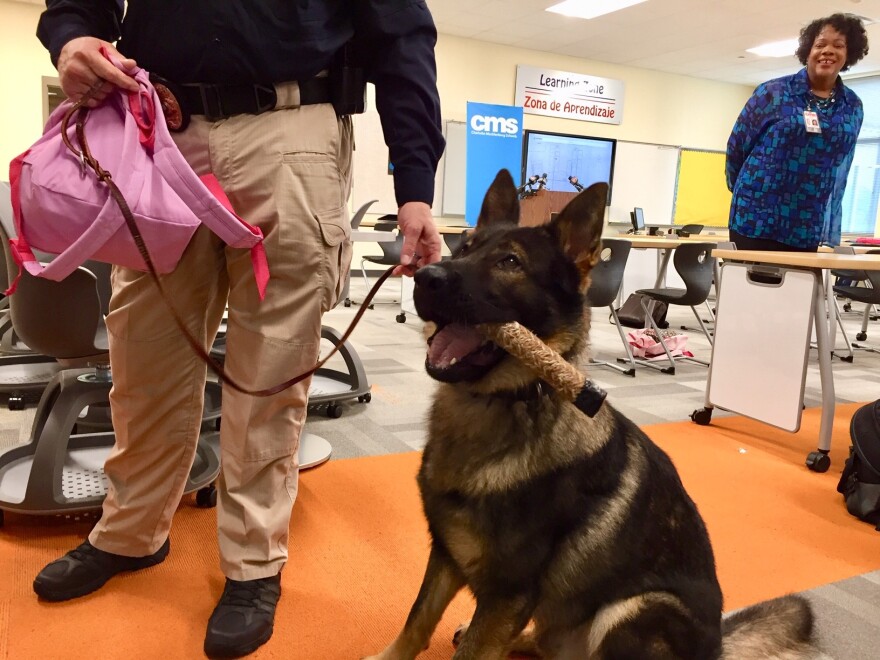Gun violence in schools and communities dominated discussion at Tuesday's meeting of North Carolina's Task Force for Safer Schools.
The group heard that the state's firearm deaths among children rose 88% in 2020 compared with the previous year. And North Carolina experienced two school shootings as schools opened this year. One of them killed a Winston-Salem high school student.
Attorney General Josh Stein, a task force member, said this comes as students and educators need to focus on recovering from academic setbacks during the pandemic.
"We cannot have them worrying more about violence breaking out on their campuses than they are about learning," he said. "Unfortunately we’ve already seen heartbreaking instances of violence on our school grounds just this year."
Even when no shots are fired guns create fear and distraction, Stein said.
"Guns have been confiscated from students in Raleigh, Charlotte and Winston-Salem. And there have been already a number of lockdowns at several schools, including my daughter’s, this year," he said.
Stein said all districts are required to file a risk management plan with the Division of Emergency Management, laying out strategies for action if violence occurs. But not all have done so, he said. That needs to change: "These plans can be the difference between life and death, by protecting students and school staff when a threat arises."
Gov. Roy Cooper spoke to the group, saying violence prevention has to be part of the state's constitutional mandate to provide all students a sound basic education. That includes finding ways to keep guns off campuses and providing mental health services for students, he said.
Too easy for kids to get
William Lassiter, who works in juvenile justice for the Department of Public Safety, chairs the task force. He said an increase in gun purchases during the pandemic may be fueling the problem, especially when new gun owners don’t store their weapons safely.
"That led to a lot of juveniles finding guns in easy-to-get places," Lassiter said. "A lot of times those guns were on front seats of cars, they were not secured in people’s homes. We found that a lot of kids were either taking them from their parents or from people that they knew."
The task force supports a bill to educate people about safe storage and provide gun locks. It has passed the House with a strong bipartisan majority and gone to the Senate.
Karen Fairley, executive director of the state's Center for Safer Schools, says schools will soon get training on how to assess whether students could pose a danger.
"We are making sure or monitoring that children get the help that they need but they are not being unfairly targeted," she said.
The center is also working on a leadership academy to help students come up with ideas for their own schools. Sessions are expected to start early next year.
Communities must get involved
But several speakers said disrupting gun violence has to happen in communities as well as schools. Lassiter cited data on juvenile offenses related to guns.
"Over the last three years we’ve seen almost 7,000 incidents of gun offenses in the state of North Carolina. And only 5% of those, fortunately, have occurred on school campuses, but that’s 5% too many," he said.
Speakers from the national Community Justice Action Fund said cities and counties need to invest in violence disruption programs that target communities where shootings are happening most often. Thia’a Rahman cited Durham’s Bull City United as an example.
"It provides violence intervention services that detects and interrupts potential conflicts," she said. "This program also focuses on breaking the cycle of retaliation, which is very, very important in reducing community violence."
The city of Charlotte and Mecklenburg County also recently approved an alternatives to violence program that will focus on the Beatties Ford Road corridor.
Officials say North Carolina’s Department of Public Safety is preparing a five-year plan for reducing violence in schools.





